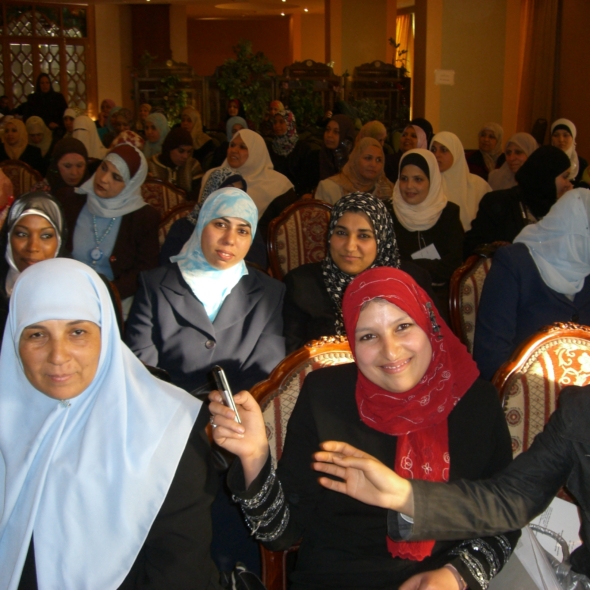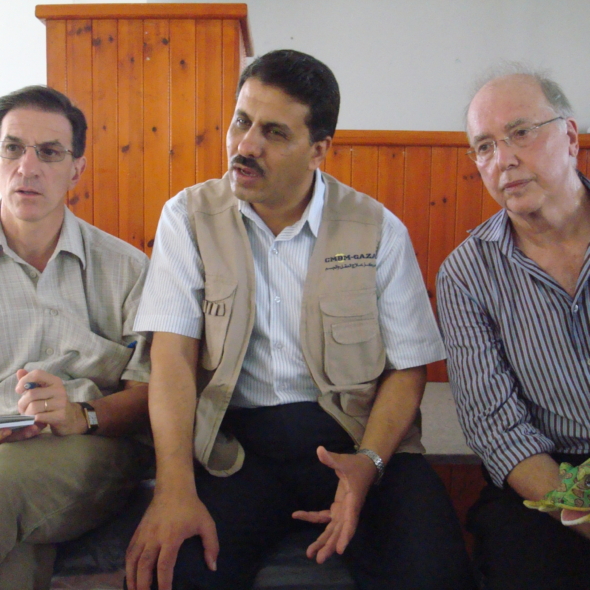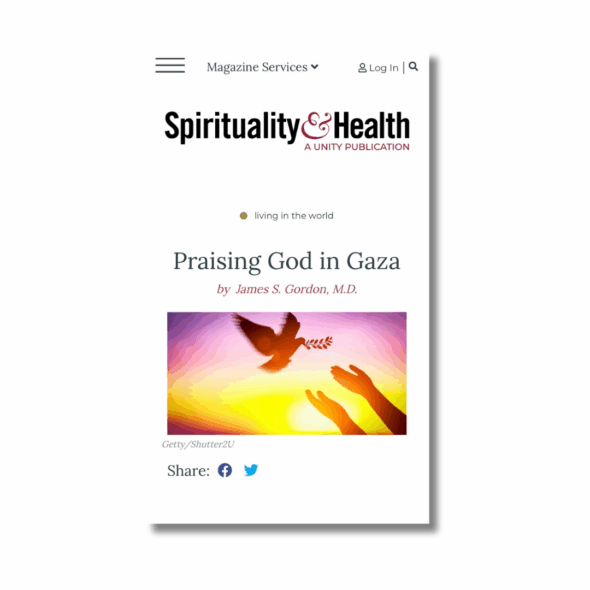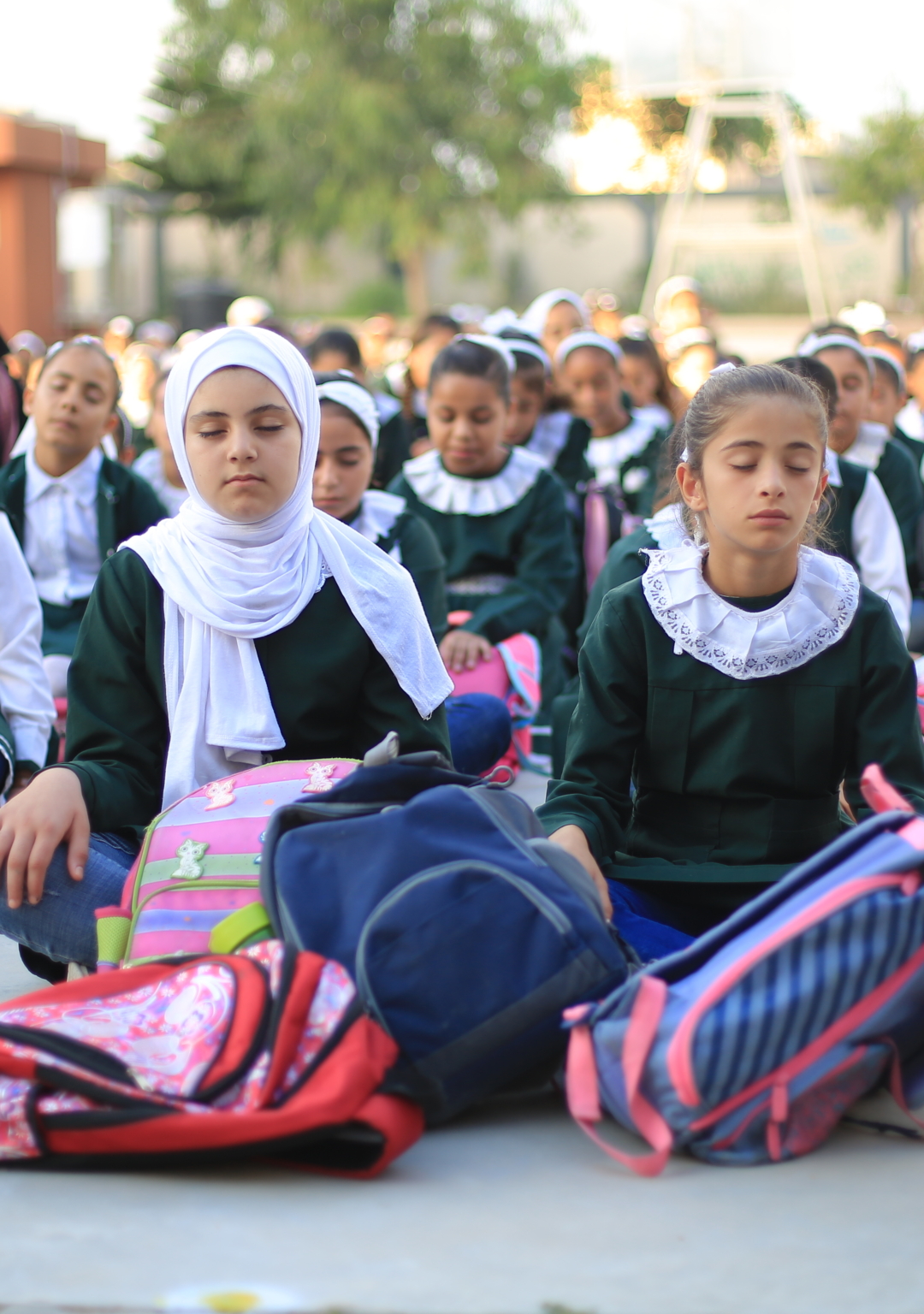
Addressing the Challenges in Gaza
The Palestinian territory of Gaza is a 25-mile long sliver of land between Israel and Egypt isolated from the outside world by both countries, and regularly referred to by its own inhabitants as “the world’s largest open-air prison.” Since 1948, one of the most densely populated places on our planet, Gaza has experienced violent political and clan schisms, as well as unpredictable land, air, and sea attacks that have claimed the lives of thousands of civilians and destroyed both infrastructure and residential housing. Even before the current devastating bombardment and invasion by Israel in retaliation for Hamas’s October 7th attack, the entire population of 2.2 million has been afflicted by high rates of unemployment and poverty, by limited and unreliable access to basic needs, including water, sanitation, power, food and adequate health care. Since the beginning of the last war, the situation has become catastrophic.
Program Update
The death and damage in Gaza from Israel’s retaliation for Hamas’s October 7th attack have been immense. As of November 2025, over 70,000 Gazans have been killed, a significant majority of whom are children and women, and more than 170,000 have been injured. Well over 80% of the buildings in Gaza have been completely destroyed, and over 90% of the population has been forced to leave their homes, multiple times. Infrastructure, which was already inadequate and unreliable, has been utterly crushed, with the majority of hospitals currently non-functioning, power rarely available, and hundreds of schools, public buildings, and places of worship destroyed. Much of the population has no access to potable water, sufficient nutrition, or adequate shelter. Public health officials are warning of lethal epidemics of viral and bacterial disease and widespread famine.
The entire population is suffering from profound psychological trauma. Children are asking questions that should never be coming to their minds— “Am I alive only to be killed?” and “When will it be my turn to die?”—and many adults are immobilized by despair.
Our Gaza Faculty has, along with the rest of the population, suffered greatly. Two of our Faculty—Shaher Yaghi, 59, and his daughter, Sumaia—were killed along with 20 members of their family when a bomb destroyed their home in Jabalia. Shaher, who had been a member of our Faculty for 17 years, was an enormously gifted clinician and a compassionate person who had worked coordinating the UN’s program for special needs children. Sumaia was a gifted and promising young psychologist who joined her father as a member of our Faculty 6 years ago. In addition, two sisters of our Country Director, Dr. Jamil Abdel Atti, have been killed, as have family members of many of our other Faculty.
Though all of our Faculty and Staff have suffered greatly—with the vast majority forced to leave their homes and temporary shelters multiple times—they have, at great personal risk, been bringing our program of emergency trauma healing and resilience building to UNand other shelters, to temporary learning structures, and hospitals, as well as to people who are living amidst the rubble on the streets of north, central and southern Gaza. To date, they have shared mind-body skills, via workshops, Mind-Body Skills Groups, individual counseling, and recreational groups with more than 230,000 children and adults, in-person and virtually. They have served first responders transporting the wounded hospitals and recovering the bodies of the dead, orphans, and internally displaced people in 166 shelters across the territory.
With support, the CMBM-Gaza Faculty and Staff will continue to significantly expand the program to meet the needs of tens of thousands of children and adults across Gaza.
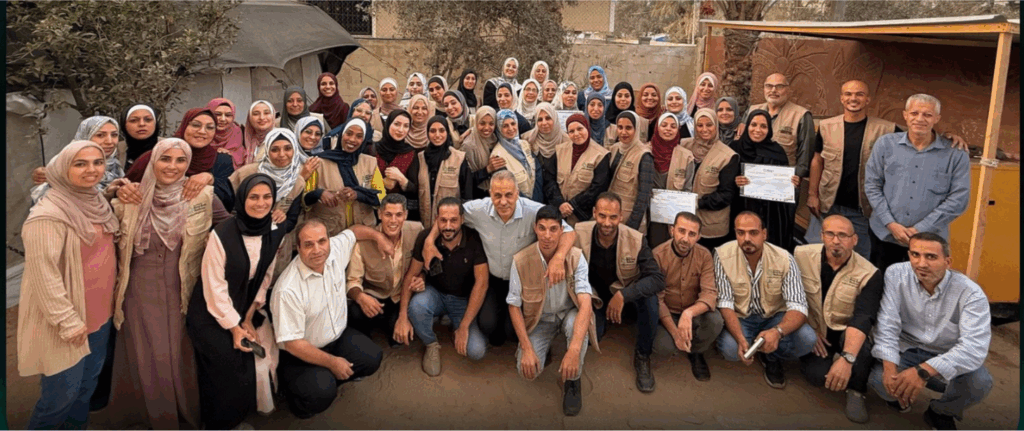
Testimonials
CMBM x Islamic Relief USA | Gaza Testimonial 1
CMBM x Islamic Relief USA | Gaza Testimonial 2
CMBM x Islamic Relief USA | Gaza Testimonial 3
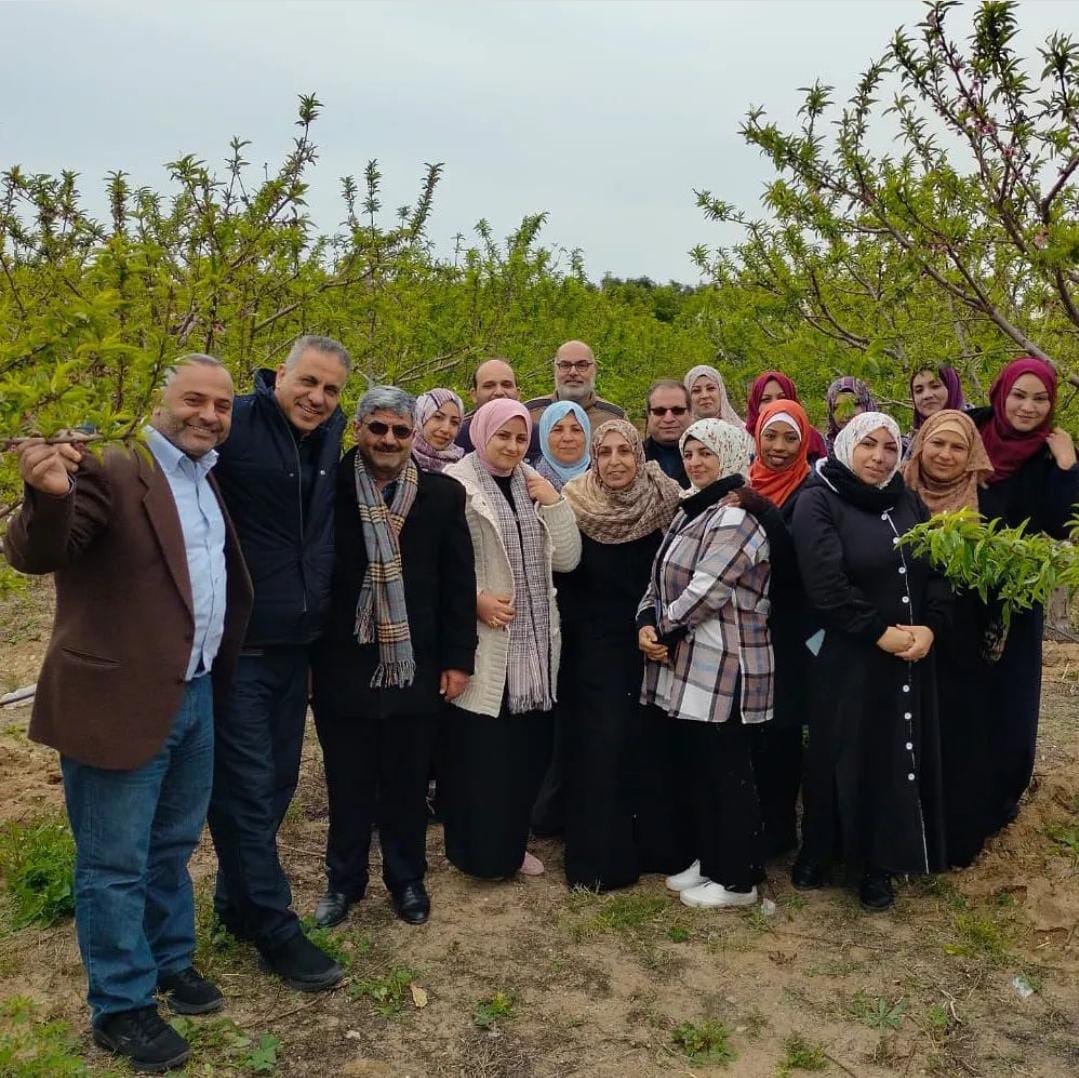
Support Our Work in Gaza
With your generous support, we will significantly expand our program to meet the needs of tens of thousands of deeply traumatized, internally displaced Palestinians throughout all of Gaza.
Pictured: CMBM-Gaza Faculty on a retreat in 2022, Shaher Yaghi, 59, and his daughter, Sumaia front row, third and fourth from left.
Our Work
Our program in Gaza is one of the world’s largest, most effective and most culturally acceptable programs of trauma healing. Since 2005, we have trained 1,500 Palestinian clinicians, educators, key figures in women’s groups, and other community leaders in its model of psychological self-care and group support. These trainees have in turn brought our approach to more than 280,000 children and adults.
Some 60,000 have participated in 10 sessions of Mind-Body Skills Groups, which have repeatedly demonstrated, in studies published in peer-reviewed scientific journals, that they can reduce by 80% or more the numbers of children, adolescents, and adults who qualify for the diagnosis of post-traumatic stress disorder (PTSD).
Since October 2023, the CMBM team has provided
- Emergency Mind-Body Self-Care Workshops for 325,311 children, adolescents and adults
- 5-session Mind-Body Skills Groups for 13,692 children/adolescents and adults
- Individual and family/group support through a hotline and in-person sessions for 48,362 individuals
- SMS/text message and multimedia stress-relief content for 12,142individuals
- Recreational activities for 63,298 children
Most of the beneficiaries have been internally displaced due to the war, as well as a small number of people who remained in their homes. Over 95% of the beneficiaries were located in shelters, having been forcibly displaced from their homes, often several times. The majority of in-person services were provided to individuals in informal shelters in all of Gaza Governorates, mainly in the Middle Area, Khan Younis; some in Gaza City and the North. Like almost everyone in Gaza right now, the beneficiaries of this activities are highly food insecure, nearing risk of famine. They lack access to clean water, fuel, electricity, telecommunications, and health and hygiene supplies. They have all lost people that they love: family members, friends, and colleagues killed during this war. They are living in dire conditions at shelters due to overcrowding and lack of adequate humanitarian aid, facing the spread of infectious diseases, and heightened tensions and violence within the camps as people fight over scarce resources. All beneficiaries face immense psychological health challenges.
Impact
- 300,000+ children and adults served
- 1,500 clinicians, educators, and leaders of women’s groups trained in our model
- 18 gifted and committed local faculty members and facilitators, led by Country Director Jamil Abdel Atti, PhD, MA
- As many as hundreds of Mind-Body Skills Groups meeting each week
- Immediate emergency response during conflicts
- Cooperation with the Ministry of Education to integrate our model and mind-body skills into all of Gaza’s public schools
- Training for 1,150 teachers working in Temporary Learning Centers
- Emergency services for orphans of war, those who have lost family members, and those rendered homeless by conflict and disruption
- Ongoing gender-based violence and ordnance awareness trainings. Our model is used by all of Gaza’s major programs
- Special programs for disabled children and adults, those with cancer and other chronic illnesses, and first responders
Our Research
Staples, J. K., Abdel Atti, J. A., & Gordon, J. S. (2011, June 27). Mind-Body Skills Groups for Posttraumatic Stress Disorder and Depression Symptoms in Palestinian Children and Adolescents in Gaza. International Journal of Stress Management. Advance online publication. doi: 10.1037/a0024015
Gordon, J. S., Staples, J. K., He, D. Y., & Atti, J. A. A. (2016). Mind–body skills groups for posttraumatic stress disorder in Palestinian adults in Gaza. Traumatology, 22(3), 155–164. https://doi.org/10.1037/trm0000081
Our Model in Action



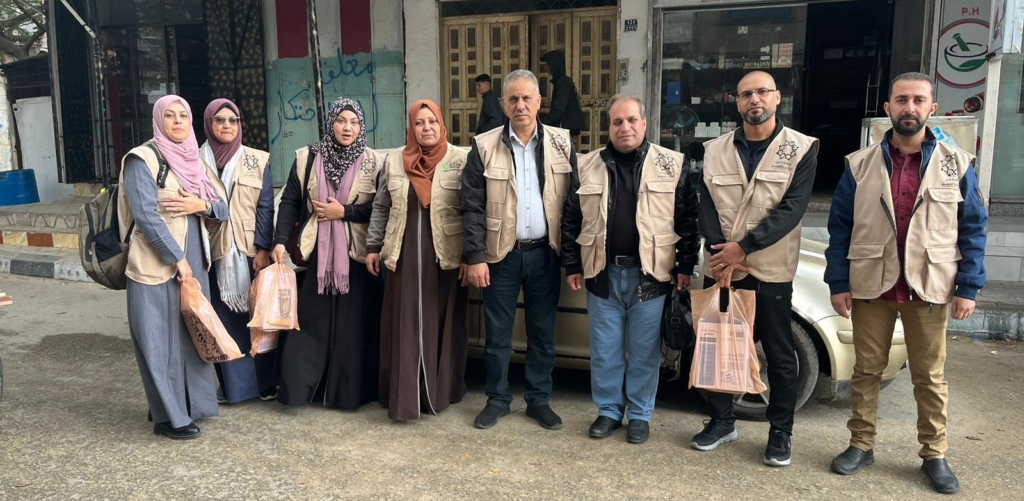
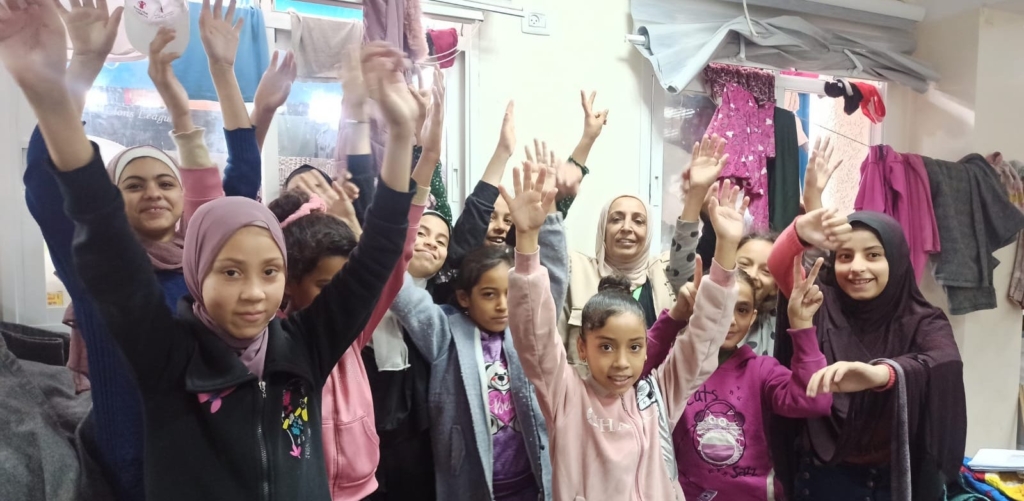
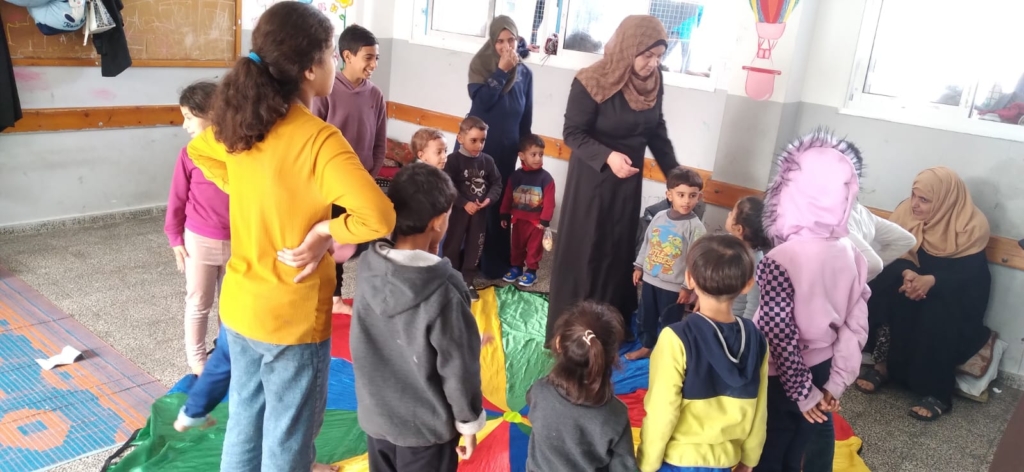
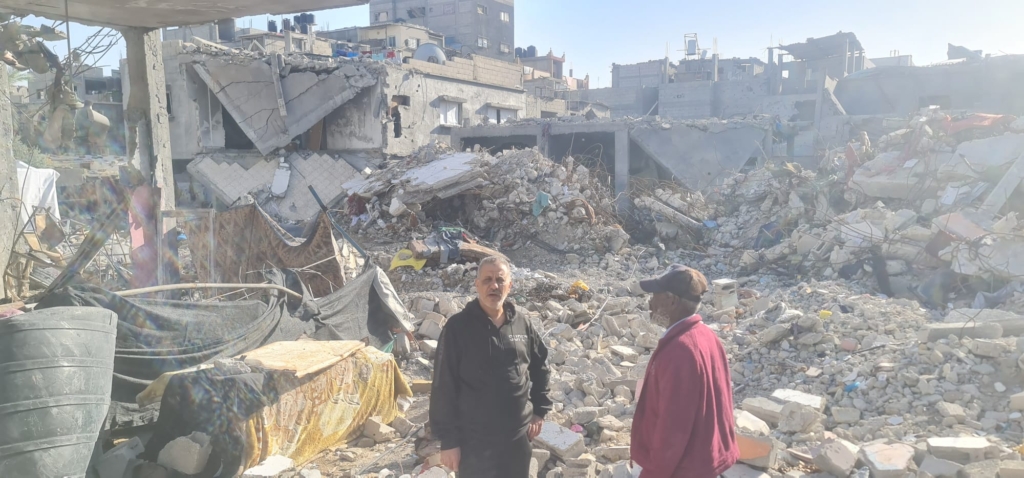
International Training on Mind-Body Skills for Children and Teens
(September-November 2025)
LHI Project (2024)
UNICEF | For Every Child
“The Lesson of War,” CBS 60 Minutes (5/3/2015)
Mind-Body Skills in Use at the Hetten School in Gaza
Palestinian Children’s Relief Fund & CMBM Childrens’ Summer Camp in Gaza
Community-Wide Healing
Finding Hope in the Face of Another: Trauma Relief in Gaza
Healing and Hope 3 Project
CMBM Gaza in the Press
Stressed Gazans Turn to Meditation After War
“‘We are teaching very simple tools of self-care,’ said Dr. James S. Gordon, a psychiatrist who runs The Center for Mind-Body Medicine in Washington, D.C., and offers a parallel trauma program in Israel.” Read more.
Finding a Steadier Path in Gaza
“‘We try to look to the light, to the hope,’ said Jamil Abdel Atti, who heads [The Center for Mind-Body Medicine] in Gaza. ‘We say, ‘Take off those dark glasses.’” Read more.
Psychotherapy Networker | “Bringing Hope and Healing to Gaza”
CMBM Founder and CEO James S. Gordon, MD wrote an inspiring article about Jamil Abdel Atti, PhD and our CMBM-Gaza team, working tirelessly to provide essential psychosocial support services to displaced Palestinians in refugee camps across Gaza.
Spirituality & Health | “Praising God in Gaza”
CMBM Founder and CEO James S. Gordon, MD shares how faith and mind-body medicine are sustaining hope and resilience for hundreds of thousands of people in Gaza.
Katie Couric Media | “President Trump, Please Hire Gazans to Rebuild Their Home”
CMBM Founder and CEO James S. Gordon, MD writes about his vision for trauma healing and community-led rebuilding that centers the resilience, skills, and leadership of the people of Gaza.
Funding partners
Thank you to our funding partners for their generous support:
- Islamic Relief USA
- UNICEF
- Direct Relief
- Lifting Hands International
- Americares
- Private donors
